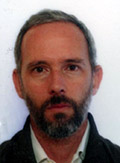
Massimo Reverberi – CEO (massimo.reverberi@uniroma1.it), PhD in Botany, is an Associate Professor of Plant Pathology at Sapienza University.
He participated in several European projects on the control of the biosynthesis of some mycotoxins in different foodstuffs and on the application of the integrated control against fungi responsible for post-harvest spoilages. He was a coordinator in several Research Unit of National Project, participate in 5 EU project funded under FP7 and one LIFE Project 2018-2023. Massimo Reverberi has authored or co-authored more than 80 peer-reviewed, ISI-indexed publications on various aspects of plant pathology, mycology and microbiology (Hi 25) and attended as a speaker several International Congresses. In light of the third mission of Academics, he is currently President and co-founder of an Academic Start-up, SARA EnviMob, a company dealing with a sustainable solution for mitigating negative anthropic impact in the environment and agriculture.
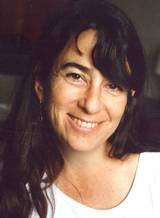
Devra I. Jarvis – Agrobiodiversity Area leader (d.jarvis@raffaellafoundation.org), is the Coordinator of the Platform for Agrobiodiversity Research (https://www.agrobiodiversitypar.org/), President, The Raffaella Foundation (www.raffaellafoundation.org), Adjunct Faculty at Washington State University, Adjunct Professor at the Institut Agronomique et Veterinaire Hassan II, Morocco, and an Honorary Research Fellow at the Alliance of Bioversity International and CIAT. Jarvis holds a PhD in Botany/Quaternary Palynology from the University of Washington, an MSc in Forest Research Management, University of Washington, and a BA with Honors in Cultural Anthropology, from the University of California, Berkeley.
For the last 25 years, Jarvis has worked collaborating with national partners in Mexico, Peru, Ecuador, Bolivia, Cuba, Morocco, Tunisia, Iran, Jordan, Vietnam, China, Nepal, Hungary, Syria, Sri Lanka, Burkina Faso, Mali, Niger, Ethiopia, Uganda, Uzbekistan, Turkmenistan, Tajikistan, Kazakhstan, Kyrgyzstan, the U.S., and the European Union to develop scientific evidence to support the use of local crop genetic diversity to improve the production and resilience of small-holder farmers. She is currently developing university course materials with national universities to train extension workers around the world in improving local productivity with crop genetic diversity in the production system. Jarvis also brings together national partners in the fields of crop, livestock, fisheries and associated biodiversity to examine how diverse components of the agricultural ecosystem could support agroecosystem production, resilience and services. The impact of her collaboration with national partners ranges from reducing damage from pests and disease without pesticides for common bean and banana in Uganda and Ecuador, fruit tree nurseries in Central Asia providing over 1.5 million traditional varieties annually to farmers, and participatory bred varieties of rice, sorghum and millet being released through national systems in Nepal and Mali. She is the co-author of over 80 research articles, book chapters and proceedings, lead editor of Managing Biodiversity in Agricultural Ecosystems (2007, Columbia University Press), which has been translated into Arabic, Chinese, French, Spanish, Russian, and Korean, and lead author of Crop Genetic Diversity in the Field and on the Farm, Principals and Applications in Research Practices (Yale University Press 2016), translated into French, Spanish, Arabic, Chinese and Russian. In the early ’90s, Jarvis worked for the UN World Food Program, in China as Monitoring and Evaluation Officer, and in Uganda as Head, Emergency and Relief, and from 2013-2015, she served as the Chair, of the Science Council for the Agropolis Foundation, a French funding agency with an international scientific network, 42 research units. She is recognized as an International Expert to Chinese National Science Foundation (NSFC), and the Yunnan Academy of Agricultural Sciences (YAAS), and was awarded in 2017 a Certificate of Recognition from the California Legislative Assemble, “ In appreciation of her vital work pursuing agricultural biodiversity for sustainable global food and nutrition security throughout the world”, and in 2013 from the government of Kazakhstan, Ministry of Agriculture, In recognition of involvement with and contribution to the conservation of plant genetic diversity”
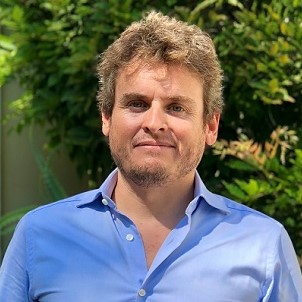
Walter Sanseverino (Sequentia-Biotech) – Bioinformatics Area leader is an Italian scientist and entrepreneur in the biotechnology field. He earned a five-year bachelor’s degree in plant biotechnology (2005), a master’s in food biotechnology (2006) and a PhD in genomics. In 2009 he defended his doctoral thesis on the “sequencing of the tomato genome and its immune system”, winning the award for the “Best PhD defence” from the University of Naples Federico II. This scientific work was also published as a cover in the Nature journal in 2012. During his PhD he visited the VIB Plant System Biology institute in Belgium (Gent) and, with the drive to better understand the business world associated with life sciences, he carried out a two-year master’s degree in “Business administration of genomics laboratories” at the CNR. After a year of post-doc at the Department of Agriculture of Federico II, he becomes a post-doc researcher at the CRAG, Barcelona’s Agri-Genomics Research Center. In 2013 he created “Sequentia Biotech” a bioinformatics company with the aim of developing innovative technologies for the analysis and interpretation of omics data. Over the years Sequentia has won 9 competitive international grants and in 2020 Sequentia was awarded the “seal of excellence” by the European Commission for the development of cutting-edge technologies. To date, Sequentia software mostly targets the biomedicine and agri-genomics sectors and are used in 67 countries. Over the past 8 years, Walter has cultivated his passion for genetic and omics sciences by holding lectures at Spanish universities UAB and UPF and seminars at many European and American universities. In 2018 he was visiting professor of the bioinformatics degree course at the La Sapienza University of Rome. From 2018 to today he has co-founded several biotechnology start-ups which he still mentors. In 2019 he was nominated by CataloniaBio among the 20 successful entrepreneurs of the Catalan ecosystem and won the career award as “distinguished graduate” of the Federico II University of Naples. Since the beginning of his career, he has published more than 45 scientific articles in high-impact international journals.
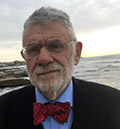
Armando Montanari – Tourism Area leader (armando.montanari@uniroma1.it) has held posts of professor of tourism geographies and human mobility and President at the Rome Sapienza University, School of Tourism, before taking up the position of deputy President at the Sara Envimob Srl Sapienza University innovative startup. He has been the author of about three hundred scientific articles and volumes in Italian, English, French, Spanish and Japanese. (https://www.researchgate.net/profile/Armando_Montanari)

Vito Emanuele Cambria – Environment Area leader (vitoemanuele.cambria@uniroma1.it) Terrestrial ecologist with ten years of professional experience in conserving and managing Mediterranean natural and semi-natural ecosystems. PhD in Landscape Ecology (topic EU Urban Green Infrastructure) and an International Master in EU Policy Consultancy & Project Management. He coordinated several projects focused on plant conservation, habitat restoration and governance of protected areas, including LIFE PRIMED (LIFE17NAT/GR/000511), TOPIO (HORIZON-MSCA-2022-SE-01-01), LIFE SEEDFORCE (LIFE20 NAT/IT/001468), NewLife4Drylands (LIFE20PRE/IT/000007), NaturAL (IPA 2013-EuropeAid/135803/L/ACT/AL). Leader of the Expert Network on Mediterranean Temporary Ponds (habitat 3170*) and of GENMEDA’s WG “Seed Force International”. Co-Chair of the ECSA’s WG “Green spaces and citizen science”. Member of SER Europe Chapter.
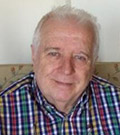
Corrado Fanelli – ex CEO (corrado.fanelli@uniroma1.it) graduated in Biological Sciences in 1969 and specialized in Microbiology in 1972 at the University of Rome “La Sapienza. He was Assistant Professor of Mycology at the Faculty of Agriculture, University of Naples from 1973 to 1975 and then Associate Professor at the University of Rome “La Sapienza” (Faculty of Sciences) from 1980. From 2001 he took up service as Full Professor of Plant Pathology at the Faculty of Sciences of the University of Rome “Sapienza”. From 11/11/2010 to 10/31/2013 he was president of the three-year degree course in Agro-Industrial Biotechnology at the University of Rome Sapienza. From 11/11/2013 to 10/31/2016 he was Director of the Department of Environmental Biology of the University of Rome Sapienza. He has taught Plant Pathology and Agro-Industrial Biotechnology by conducting research on different aspects of fungal metabolism, in particular on the factors involved with the production and control of the synthesis of aflatoxins in food and feed. He was a scientific coordinator and partner in EC projects on the control of the production of aflatoxins in foodstuffs and on the application of the integrated fight against fungi responsible for post-harvest infections. He was responsible for Research Units in University, Faculty, MUR and CNR projects. He is the author of 120 printed publications and has been a speaker at many national and international conferences. He is among the inventor of the patent “fungal extracts with antitumor activity”, presented on November 19, 2012 N ° RM2012A000573 and registered on October 9, 2015 N ° 0001418693.

Fabio Attorre (fabio.attorre@uniroma1.it) has a PhD in Botany and is an Associate Professor of Environmental and Applied Botany at the Department of Environmental Biology of Sapienza University of Rome. His main topics are the conservation of biodiversity and sustainable development in developing countries. Areas of intervention include Mozambique, Swaziland, Zimbabwe, South Africa, Papua New Guinea, Albania, Montenegro, Yemen, Ecuador, Peru, Dominican Republic. Projects have been implemented in collaboration with international organizations such as FAO, UNEDP, UNEP, IFAD, IUCN and Bioversity International. He is the Director of the Botanical Garden of Rome and participated in several management and planning projects focused on urban green open spaces and protected areas.
He is the coordinator of an international summer school to promote agro-biodiversity with a focus on urban greening and urban farming. He authored 100 peer-reviewed, ISI-indexed publications and several books on various aspects of environmental conservation facing human-mediated impacts such as climate change and land degradation processes

Barbara Staniscia Graduated from LUISS University (Rome, Italy) with a bachelor’s degree in economics, she obtained a master’s degree in Local Development from Université Paris XIII (France) and a PhD in Economic Geography from the University of Bari (Italy). She currently teaches Geography of Tourism and Human Mobility and Geography of Food at the Sapienza University of Rome, and Heritage Tourism at the American University of Rome. She is the Scientific Secretary of the International Geographical Union Commission on GLOBILITY Global Change and Human Mobility (www.globility.org), and Executive Board Member of SARA EnviMob S.r.l. – Innovative StartUp (www.saraenvimob.com). Her research has focused on urban dynamics and local development, the spatial effects of EU policies, rural development and the geography of taste, environmental conflicts, tourism, and migration. She has participated in several international research projects: YMOBILITY Youth Mobility: Maximising Opportunities for Individuals, Labour Markets and Regions in Europe (2015-2018, a HORIZON2020 research project); SECOA Solutions for Environmental Contrasts in Coastal Areas. Global change, human mobility, and sustainable urban development (2009-2013 an FP7 research project); Brain drain or brain gain? Skilled migration from Southern Europe to the new emerging Mexican cities (2014-2016); TIGER Territorial Impact of Globalization for Europe and its Regions (2010-2012); PLACE Preserving Places, Managing Mass Tourism, Urban Conservation and Quality of Life in Historic Centres (2008-2010); SELMA Spatial Deconcentration of Economic Land Use and Quality of Life in European Metropolitan Areas (2002-2006); The Spatial Effects of Demographic Trends and Migration (2003-2005 ESPON 1.1.4); MIRE Interregional Migrations in Europe (2002). She has also been a member of the research teams of the national projects: EMAHM Emergency Department as an Epidemiological Observatory of Human Mobility: The Case of Rome Metropolitan Area (2016-2018); Migrations and Processes of Intercultural Interaction. Forms of integration and Spatial Organization in some Italian Regions (2010-2012); Local Development: Space, Actors, Projects. International Comparisons (2004-2006); Human Mobility and Urban Policies (2006); Tourism and Growth: Local Factors and Spatial Competitiveness (2002-2004). She has developed research on the themes of local development, urban dynamics, spatial effects of EU policies, rural development and geography of taste, environmental conflicts, human mobility. She has published 34 papers, 24 book chapters, and two books in English, Italian, Spanish and Japanese. https://www.researchgate.net/profile/Barbara_Staniscia
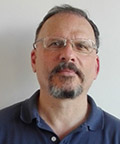
Sandro Bonacquisti (sandro.bonacquisti@uniroma1.it) Member of the National Scientific Committee CITES (Convention on International Trade of Endangered Species). With different skills, he has collaborated with the Department of Environmental Biology of the Sapienza University of Rome and with the Italian Botanical Society onlus since 2000, mainly in floristic projects concerning the creation of censuses, databases and editorial publications aimed at disseminating the results obtained. Since 2005 he has been Assistant to the Editor of the international journal Plant Biosystems. From 2010 to 2015 he collaborated with the Director of the Museum of the Botanical Garden of Rome thanks to his experience in the field of nature conservation ex-situ, in relation to botanical collections, and as a museum science divulger. Since 2015 he has been studying the growth of Citizen Science processes by participating in their dissemination
